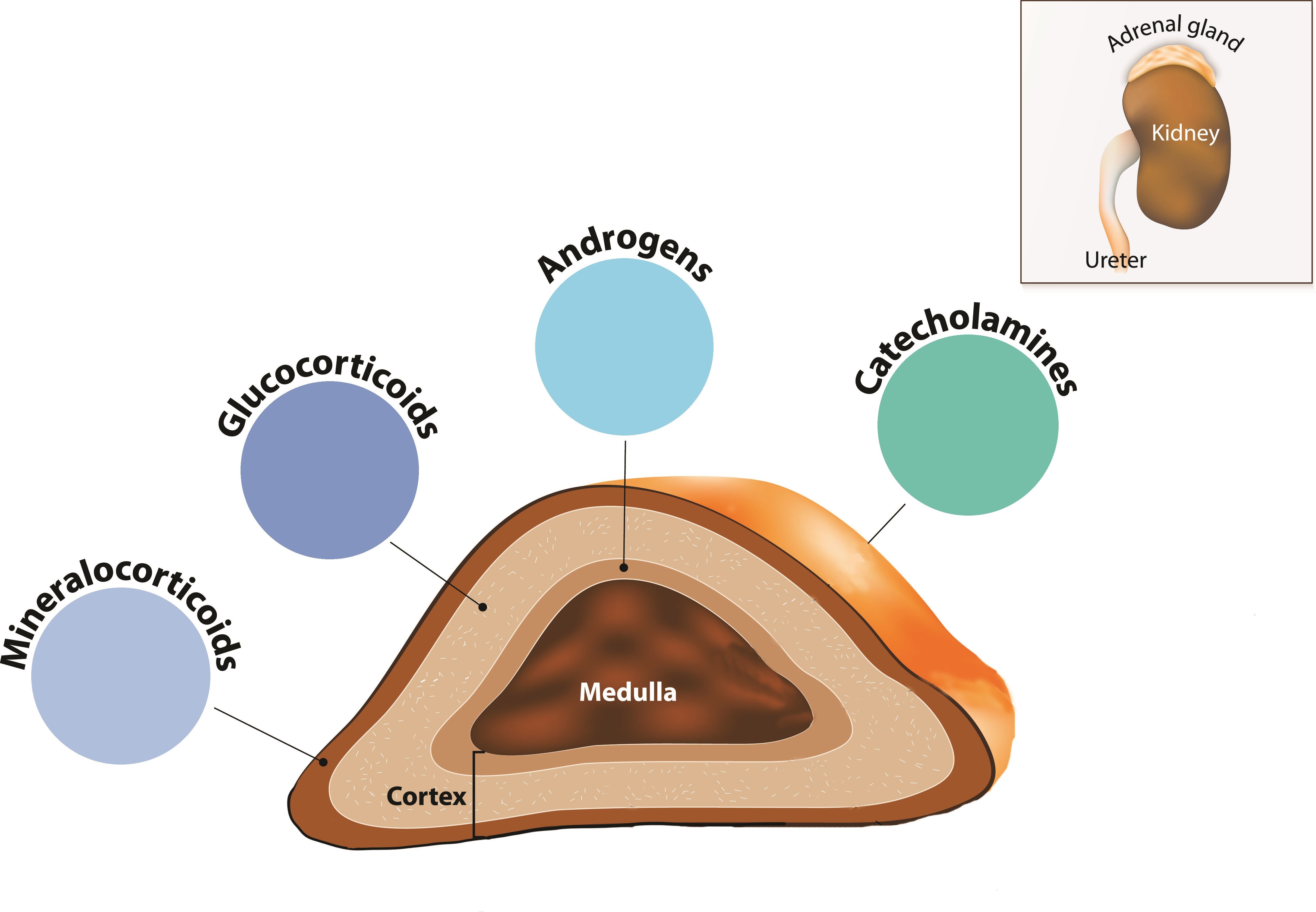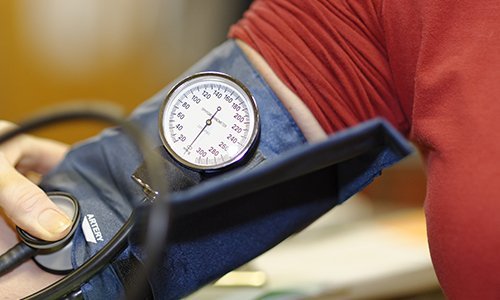Location of the adrenal gland
The two adrenal glands sit above the kidneys on each side of the body.
Each adrenal gland has an outer layer, called the ‘adrenal cortex’ and an inner layer, called the ‘adrenal medulla’.
Functions/Roles of the adrenal gland
The adrenal glands make hormones that help control:
Hormones produced by the adrenal gland

The adrenal cortex makes 3 different groups of steroid hormones: mineralocorticoids, glucocorticoids and androgens.
The adrenal medulla makes and releases catecholamines, such as adrenaline (or epinephrine) and noradrenaline (or norepinephrine).
Keeping adrenal hormones in balance
Aldosterone
Aldosterone is controlled through a negative feedback loop. The adrenal glands produce aldosterone in response to a protein in the blood called angiotensin. Angiotensin is formed when blood flow to the kidneys drops (e.g. as a result of low blood pressure or low blood volume). Aldosterone increases blood pressure and blood volume. This leads to less angiotensin being produced. This loop keeps aldosterone in a normal range.
Cortisol
Cortisol is controlled through a negative feedback loop. CRH from the hypothalamus signals the pituitary gland to make adrenocorticotrophic hormone (ACTH). ACTH then signals the adrenal glands to make and release cortisol. When a threshold is reached, cortisol signals the hypothalamus and pituitary to make less CRH and ACTH. This loop keeps cortisol in a normal range.
Adrenaline
Adrenaline is released when nerves connected to the adrenal glands become activated following exposure to real or perceived stress. When the stressful situation passes, the nerves stop sending messages to the adrenal glands, which stop producing adrenaline.
Common problems and conditions of the adrenal gland

Addison’s Disease

Congenital Adrenal Hyperplasia
Page last reviewed on 2 Mar 2023





